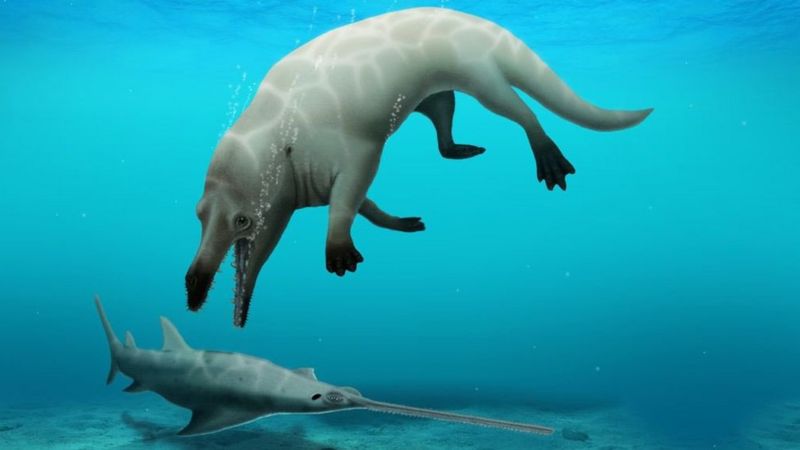History & Heritage
9.1.2021
The ancestor of whales discovered in Egypt

The 43 million year old fossil of the amphibian Phiomicetus anubis was originally discovered in the western desert of Egypt.
The first type of semi-aquatic whale to be discovered in Africa
The skeleton was discovered in the Fayoum Oasis, west of the Nile, by scientists from Mansoura University. Although it is desert today, this was not always the case: the place was once covered by the sea. This is why it is today a rich source of fossils.
Phiomicetus anubis, the name given to the animal, is derived from its place of discovery, Fayoum, and from the god Anubis, one of the oldest Egyptian deities, protector of the dead and of necropolises.

The amphibian weighed 600 kg and was 3 meters long. It had powerful jaws to catch its prey, which made it a formidable predator.
A crucial discovery for the study of biodiversity
The quadruped amphibian provides information on the transition of whales from land to ocean. These animals evolved from deer-like mammals that inhabited the land for 10 million years.
“Phiomicetus anubis is a new species of whale that is a key discovery for Egyptian and African paleontology,” Abdullah Gohar, lead author of the study, tells Reuters news agency.

Moreover, this is an important discovery for Egypt. Indeed, Hicham Salam, professor of paleontology, says: “This is the first time that an Arab research team (…) is responsible for documenting such a discovery.”
However, a question remains, that of the early evolution of whales in Africa, which remains largely a mystery.
popular

